Fed holds rates again - why should Asia care?
- Published
- comments
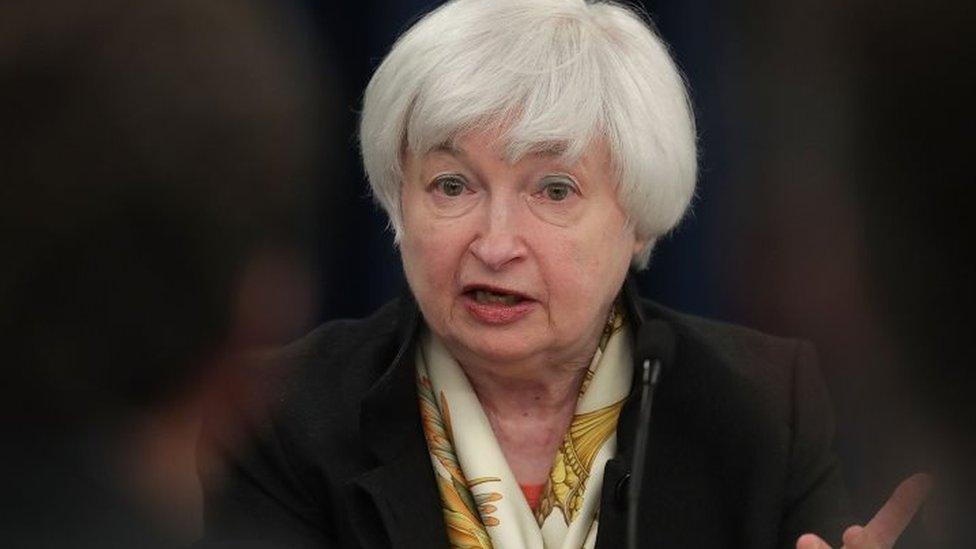
The US Fed signalled that 2016 is the year when the party will have to end, and we will have to go back to normal
The Fed's decision to hold interest rates steady yet again shouldn't surprise any of us.
But what should worry us are the reasons why the most powerful central bank in the world has decided to do nothing: "Economic growth was relatively weak late last year and even this year," said Fed Chair Janet Yellen.
Or in other words, the US and world economies are in a far more precarious situation today than they were just a few months ago when the US first started raising interest rates.
That's not good news.
It means that even after an unprecedented run of letting global economies run on low interest rates, the world isn't ready yet to be weaned off its addiction to cheap cash.
The decade of plenty
Why should Asia care?
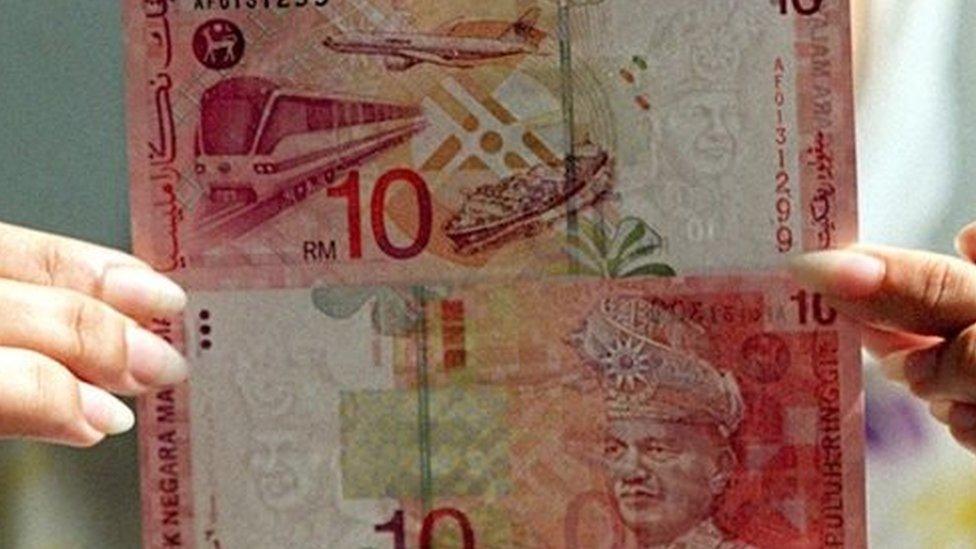
Cheap money saw some Asian currencies soar
Well, we were some of the biggest beneficiaries of that cheap cash.
When US rates were low, a record amount of foreign funds found their way into risky Asian assets like the Indonesian stock market and the Malaysian currency.
The cheap money and low interest rate environment also made it easier for Asian companies to borrow money and expand their businesses, and for Asian consumers to borrow money and buy property.
That led to over-inflated assets in Asia - stock price valuations, currencies and property prices all soared thanks to the funds from overseas, and Asia enjoyed a decade of plenty thanks to all this cheap cash.
But low interest rates aren't normal. They artificially inflate the price of goods, and just make things seem better than they are.
The US Fed signalled that 2016 is the year when the party will have to end, and we will have to go back to normal.
And yet here we are, halfway through the year and all we have had is one rate rise.
It's no wonder investors are anxious and confused. No-one can quite make sense of what's going on in the global economy, because the risks keep changing.
First, it was China's slowdown that stopped the US Fed from raising rates earlier this year. Now it's Brexit - the possibility of the UK leaving the EU - that's one of the factors rattling the Fed.
What does Japan do now?
All of this uncertainty is leading to flight to safe havens, and here in Asia that means the Japanese yen is strengthening.
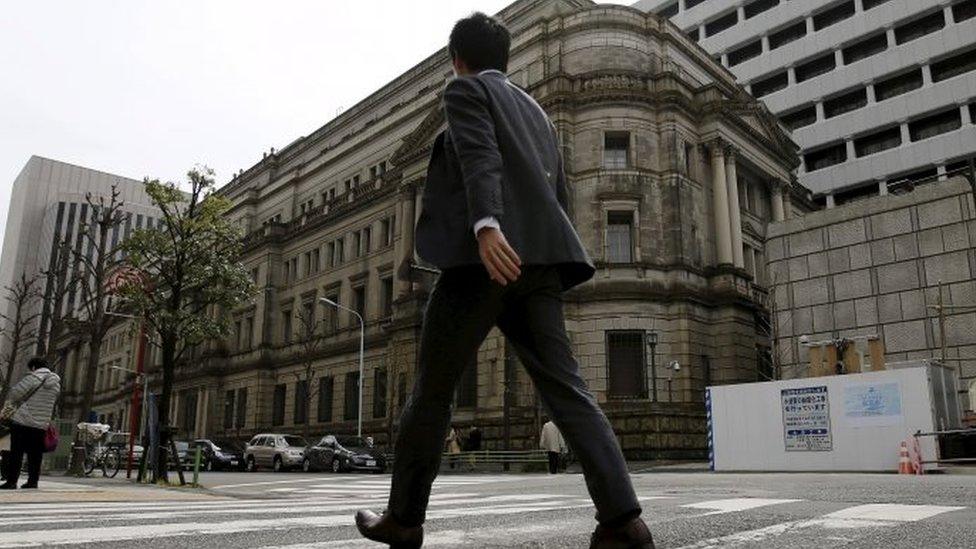
Japan's central bank introduced a negative interest rate policy of -0.1% in January and the country has delayed plans to hike its sales tax as its economy continues to struggle
But a strong yen makes it harder for Japanese companies to sell their goods overseas, and that's threatening Japan's economic recovery.
That's putting pressure on Japanese authorities to intervene in the currency markets - but they can't do it too aggressively because they risk being accused of manipulating their currency by their G7 partners.
So what next?
Well, the officials at the US Fed have indicated at least one rate rise is on the cards sometime this year, and possibly another one depending on the global outlook.
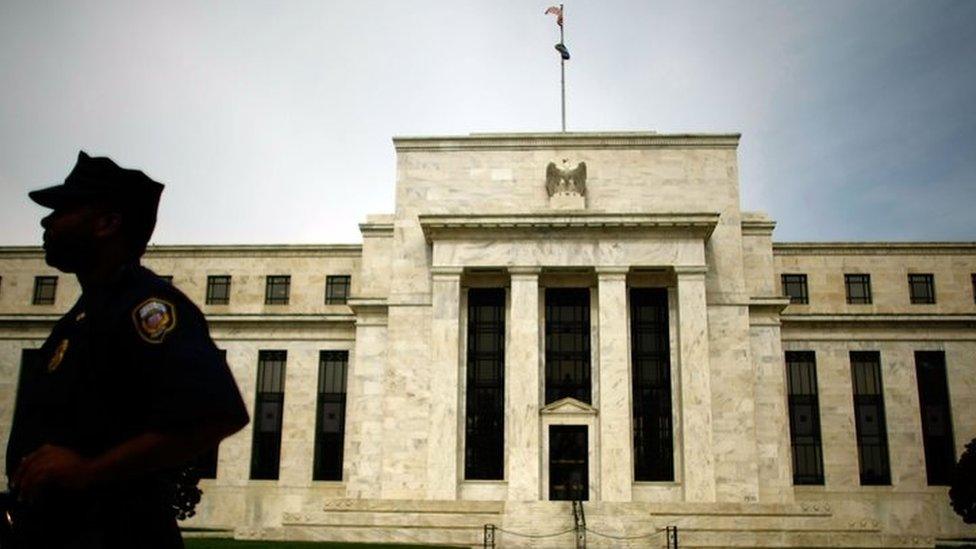
The US Federal Reserve kept interest rates at between 0.25% and 0.5% on Wednesday in the face of an uncertain jobs market
But Ms Yellen also warned that rates will only increase gradually in the future, and even if they do go up they will stay low by historical standards.
The global economy isn't out of the woods yet, not by a long shot.
Parts of Asia may be in a better economic position than the US or Europe, but Asia can't shrug off what's going on elsewhere because we are all increasingly connected.
Investors face more uncertainty ahead.
- Published15 June 2016
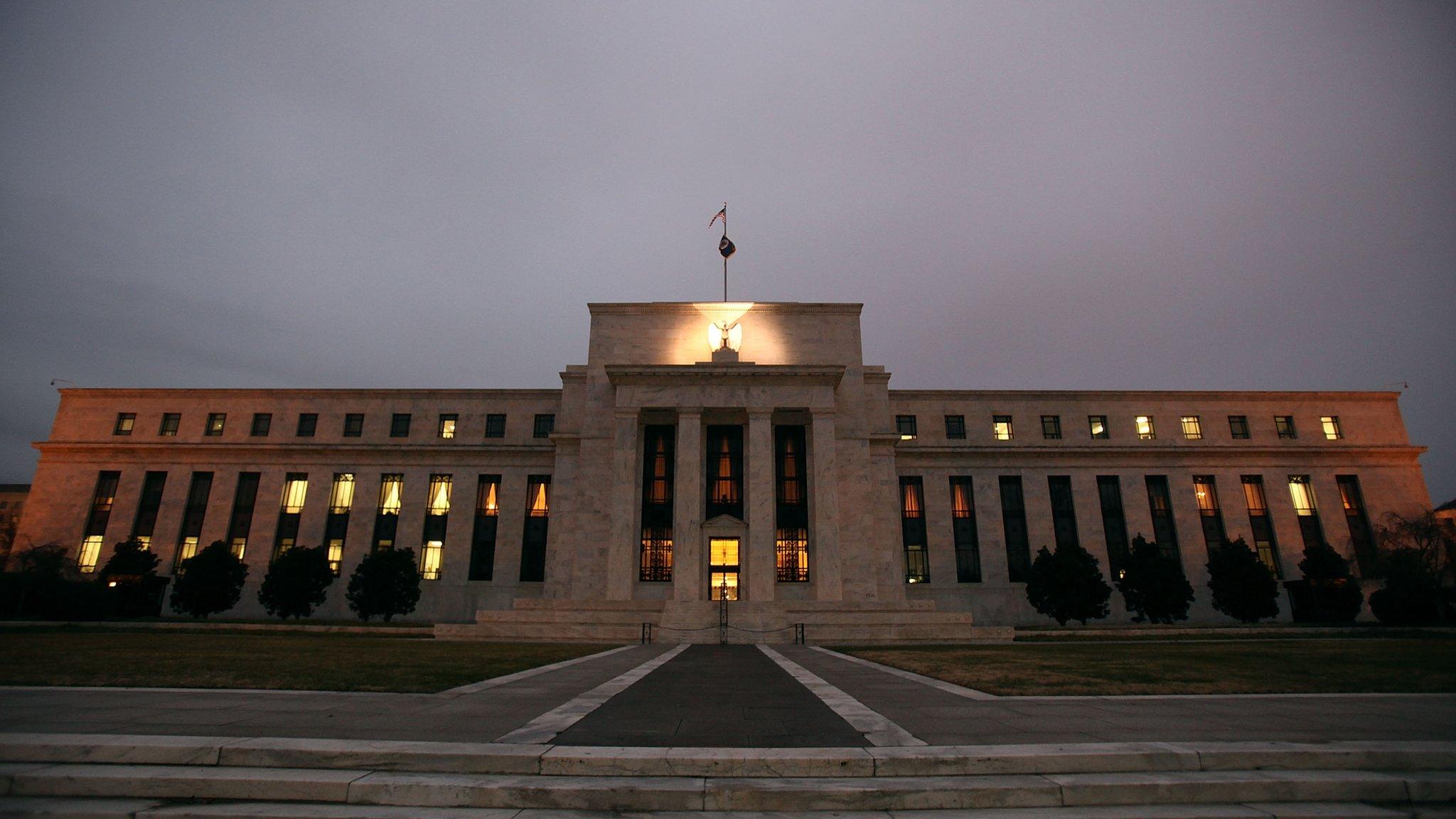
- Published16 June 2016

- Published27 May 2016
- Published22 May 2016